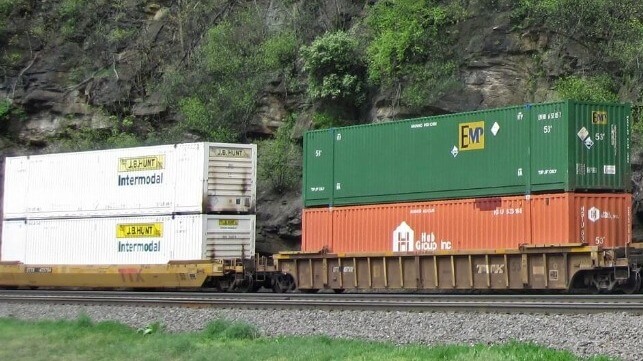11th-Hour Deal Averts Nationwide Rail Strike

Overnight Wednesday, after a marathon 11th-hour negotiating session brokered by the White House, America's freight rail operators accepted unions' demands for unpaid medical leave for conductors, engineers and other workers. The tentative agreement ends a years-long bargaining process and heads off the prospect of a strike or lockout, which could have begun as early as Friday - and would have had a devastating impact on freight transport across the nation.
"This is a win for tens of thousands of rail workers and for their dignity and the dignity of their work," said President Joe Biden on Thursday morning. "It’s about the right to go to a doctor or stay healthy and make sure you’re able to have the care you can afford."
Biden thanked both rail workers and railway operators for keeping the supply chain moving during the pandemic, and he described the agreement as a win for both labor and management. "With this agreement, railroad companies will be able to retain and recruit workers. They’ll be able to continue to operate effectively as a vital piece of our economy," he said.
The Brotherhood of Locomotive Engineers and Trainmen (BLET) and the SMART Transportation Division - together representing nearly 60,000 workers - had already reached agreement with the employers' association for Class I rail carriers, except for one sticking point. An unpopular points-based employee attendance policy - which effectively prevents medical leave, the unions claim - was worth risking a strike, even if it meant walking away from a 24-percent raise. "Our members are being terminated for getting sick or for attending routine medical visits," claimed BLET and SMART in a joint statement last week.
The tentative agreement resolves that question and gives union members a new ability to take time off for "routine and preventive medical care, as well as exemptions from attendance policies for hospitalizations and surgical procedures," the unions said. For the rest of the economy, it heads off the prospect of a $2 billion-per-day rail shutdown affecting 40 percent of the nation's freight.

that matters most
Get the latest maritime news delivered to your inbox daily.
The deal's completion was far from certain, and rail lines had already begun preparing for a halt in operations. National Economic Council Director Brian Deese told Politico that the conversation began to change after 2100 hours Wednesday, when White House officials began calling rail CEOs to warn them that "we took it very seriously and were going to resolve it and they needed to move."
The deal is not yet fully sealed: it now goes to BLET and SMART's membership for a ratification vote. The unions have agreed not to strike until voting is completed.
